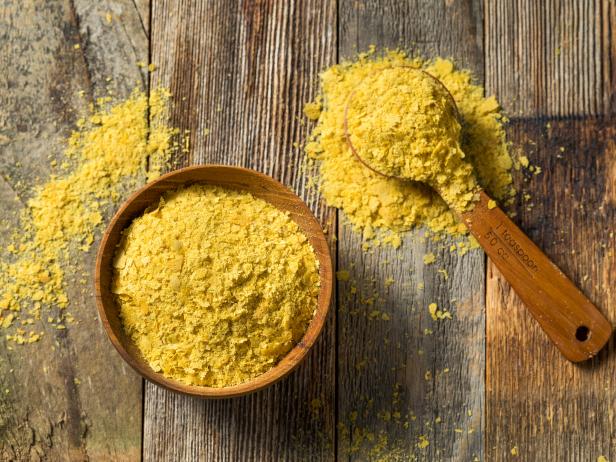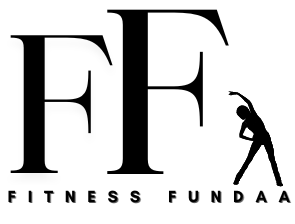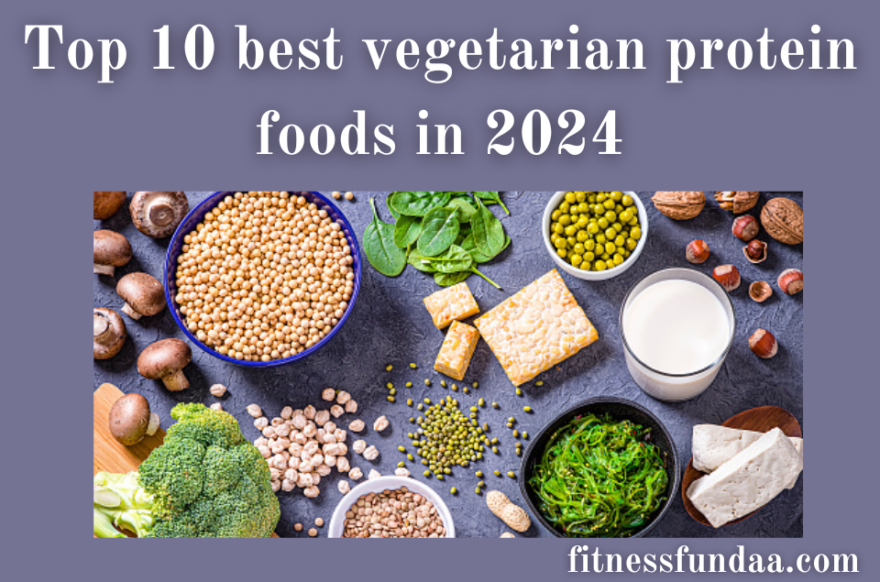Introduction:
It is a very common concern that if a person eats a vegetarian diet they will get a sufficient amount of protein, but the reality is that you can get various high-protein foods in a vegetarian diet if you research properly and you won’t lack protein. Top 10 best vegetarian protein foods in 2024. vegetarian protein foods. best vegetarian protein foods in 2024.
Many experts experimentally prove that a well-planned vegetarian diet can provide enough nutrients and protein.
Several food items contain significantly more protein than others and older studies show that a high protein diet can help you lose weight and gain muscle mass.
In starters, Vegans tend to have a lower body mass index than non-vegans which helps in the association of chronic diseases. In addition, some studies show that vegan protein-rich diets are much more effective when it comes to losing weight than any other diets including animal-based diets.
Here are the 10 best sources of high-protein foods that are vegetarian :
Top 10 best vegetarian protein foods in 2024
Tofu:-
Tofu originates from soybeans and is super popular in East Asian Cuisine. Soybeans are a whole source of protein which means they provide all the essential amino acids your body requires. Tofu is typically made from soybean curd pressed similar to how cheese is made.
Tofu is rubbery and doesn’t have much taste. It is mostly made with more spices to make it tasty. Tofu can be used in a variety of recipes because it has very little flavour so it is very versatile.
It is rich in folate, vitamin K, and dietary fibers and helps to improve gut health. 100 grams of tofu contains:
- 144 calories
- 17 grams of protein
- 3 grams of carbs
- 9 grams of fat
- And other minerals like calcium, manganese, copper, selenium, phosphorus, iron, zinc etc.
Lentils:-
Lentils are made in a variety of dishes. It is very versatile and is very common in India. Lentils are a great source of dietary fiber, it contains more than half of the dietary fiber recommended for adult fiber intake. In lentils, a type of fiber is present which will help your digestive system, and hence, your gut health will improve.
Lentils reduce the chance of heart disease and control high cholesterol. It is super rich in Folate, manganese, and iron. It contains a good amount of antioxidants and other plant compounds.
Lentils are so popular all over the world but in India, people are so accustomed to it that they eat lentils daily.
100 grams of lentils contain:
- Only 179 calories
- 35 grams of carbs
- 17.9 grams of protein
- 0.8 grams of fat
- 15.6 grams of fibre
Green Peas:-
Green peas are high in many nutrients and antioxidants, Green peas are high in complex carbs known as starchy vegetables, there are different types of peas like yellow peas, purple peas, and black-eyed peas. Green peas are the most common.
The unique protein in peas makes them an excellent vegetarian source of protein. Furthermore, make sure that peas are not a complete source of protein because they lack an amino acid known as methionine.
To ensure you are eating enough protein, pair green peas with another protein-rich source to make up the deficit of amino acids.
170 grams of green peas contain:-
- Only 62 calories
- 11 grams of carbohydrate
- 4 grams of fibre
- 4 grams of protein
- Vitamin A, K, C
- Thiamine, Folate, Manganese, Iron, Phosphorus
Kidney Beans:-
Kidney beans are one of the most widely used non-veg protein resources, used across many cultures, and contain a large amount of protein per serving. Kidney beans are composed of fiber, carbs, and a good amount of protein.
Although the protein quality of kidney beans is lower than that of animal protein, it is a good and affordable option for many vegetarian individuals. Kidney beans contain phasolein which causes an allergic reaction in some individuals.
100 grams of boiled kidney beans contain:-
- 127 calories
- 8.7 grams of protein
- 22.8 grams of carbohydrate
- 0.3 grams of sugar
- 0.5 grams of fat
- Vitamin K, E, A
Nutritional Yeast:-

Nutritional yeast is a deactivated strain form of saccharomyces cerevisiae and is sold commercially as a yellow powder or in flakes. It has more of a cheesy flavor. People use nutritional yeast in bland dishes like mashed potatoes, tofu, etc.
Nutritional yeast is an excellent source of zinc, magnesium, copper, and manganese.
5 grams of nutritional yeast contain:
- Calories 20 kcal
- 3 grams of protein
- 0 gram of fat
- 2-gram carbs
- 4% of daily fibre
- Vitamin B2, B3, B9, B12
- Iron, potassium, folate, zinc
Hemp Seeds:-
Hemp seeds derived from Cannabis sativa plant belonging to the family of cannabis plants, Hemp seeds contain very little amount of tetrahydrocannabinol, the compound which produces the psychoactive effects of cannabis.
Although hemp seeds are not that popular compared to other seeds, they contain 9 grams of protein in 30 grams of serving. They are a great source of omega-3 and omega-6 fatty acids which are optimal for human health.
Studies show that fats found in hemp seeds help reduce inflammation and prevent symptoms of premenstrual syndrome, menopause, and some skin conditions.
You can simply add hemp seeds to your diet by just sprinkling them over smoothies or in salads.
A 3 tablespoon portion of hemp seeds contain:-
- Only 166 calories
- 14.6 grams of fat
- 1.5 milligrams of sodium
- 2.6 grams of carbohydrate
- 9.48 grams of protein
Soymilk:-
It is a nutritional beverage that is very low in calories, high in protein, and rich in various vitamins and minerals. Drinking soy milk will help you improve cholesterol levels, reduce high blood pressure, fight against inflammation, and help in fat loss. Soymilk is a good source of vitamins, minerals, riboflavin, calcium, vitamins A, B12 and D.
Soymilk nutrition usually depends on whether it is sweetened or not if it’s fortified with vitamins and minerals.
240 ml of unsweetened soy milk contains:
- Only 80 calories
- 4 grams of fat
- 4 grams of carbohydrate
- 7 grams of protein
Cottage cheese:-
Cottage cheese is a low-calorie cheese that is highly nutritious and packed with different types of vitamins and minerals, thus promoting weight loss and muscle gain. It is not only high in protein but also contains essential nutrients.
The nutritional value of cottage cheese depends upon the fat present in milk thus cottage cheese is made by curdling milk. Cottage cheese is an excellent source of protein when eating a large amount of cottage cheese, make sure to buy low-sodium varieties because high-sodium varieties can raise your blood pressure level.
113 grams of cottage cheese contains:-
- Calories only 81 kcal
- 14 grams of protein
- 3 grams of carbs
- 1 grams of fat
- Vitamin B12
- Sodium, selenium, riboflavin, phosphorus, calcium, folate.
Soybean:-
Soybean is a plant-based protein that offers another beneficial compound. Soybeans are a type of legume very common in eastern Asia. Soybeans are usually eaten whole but heavily processed soy products are available in very common markets.
Soybeans contain antioxidants and phytonutrients which all together give various health benefits. Soybeans are usually composed of protein but carbs and fats are also present
The main types of protein in soybeans are glycine and conglycinin which is around 80% of total protein content. Some people do feel allergic reactions to these proteins.
100 grams of boiled soybean contains:-
- 172 calories
- 18.2 grams of protein
- 8.4 grams of carbs
- 6 grams of fibre
- 9 grams of fat
Quinoa:-
Quinoa is packed with healthful nutrients, gluten-free as well as antioxidants. It doesn’t take much time to get prepared and is easily accessible. It is so versatile that you can make both types of dishes sweet and savory.
Quinoa is not only nutrient-dense but also offers you so many other health benefits, too. Quinoa is a seed cultivated from quinoa grain crops. It is a seed that is prepared and eaten just like grain. Quinoa is a good source of nutrients such as folate, magnesium, zinc, and iron.
185 grams of cooked quinoa contains:-
- 222 calories
- 8 grams of protein
- 3.55 grams of fat
- 39 grams of carbohydrate
- 5 grams of fibre
- Folate, vitamin B6, vitamin E, copper, iron, zinc, manganese, magnesium, potassium, and phosphorus.
Conclusion:-
Although uncertainties are everywhere for adults, classic vegetarian protein diets supply you with more than adequate amounts of protein and essential amino acids. There are plenty of protein resources that you can add to your diet to make it high in protein. Insufficient protein intake in vegetarian diets will occur if the diet doesn’t include vegetarian high-protein sources such as legumes, nuts, beans, mushrooms, peas, and many more. These vegetarian proteins give plenty of protein than any other animal protein diet contains.
The report shows that vegetarian protein foods and overall protein patterns are characteristics of a diet that is more based on plants than animals in Western culture. If your diet has a modest amount of protein then there is no problem regarding sufficient intake of protein. Also, it is shown that a vegetarian diet which contains proteins and amino acids including lysine shows no issue if a person eats vegetarian protein food.
FAQs regarding vegetarian protein sources:
What is the best way to get protein for vegetarians?
There are plenty of vegetarian protein options like lentils, seeds, nuts, beans, etc.
What is the most common vegetarian protein source in India?
Lentils, pulses, and beans are protein-rich and widely used in India.
How much protein a vegetarian should take in a day?
An individual should take around 0.75 grams of protein per kilo of their body weight for a balanced lifestyle.
Do vegetarians have protein deficiency?
If you are eating a balanced diet full of lentils, tofu, cheese, and other high protein sources then no, you won’t have protein deficiency.
What is the role of protein in your body?
Protein catalyzes chemical reactions in the body and helps in gaining muscle mass while cutting body fat percentage.
What will happen if you lack protein?
If you lack protein then you will experience hair loss, and brittle nails and you will feel weak and you won’t feel satisfied.
How much protein can your body absorb?
Every individual should take a good amount of protein and your body needs a high protein diet to function properly thus, the limitation of protein is virtually unlimited.
Is protein good for everyone?
The body needs protein to function properly and to grow so yes, protein is good for everyone.
Can we live without protein?
Your body won’t be able to function properly without protein and its essential amino acids.
Does a high-protein diet give you energy?
On a normal day if you consistently eat a high protein diet then protein gives you about 5% of daily energy.
see also : Top 10 Most Healthy and Nutrient-Dense Vegetables
Reference links.
https://www.healthline.com/nutrition/protein-for-vegans-vegetarians
https://www.ncbi.nlm.nih.gov/pmc/articles/PMC6893534/
https://pharmeasy.in/blog/list-of-protein-rich-food-for-vegetarians/

